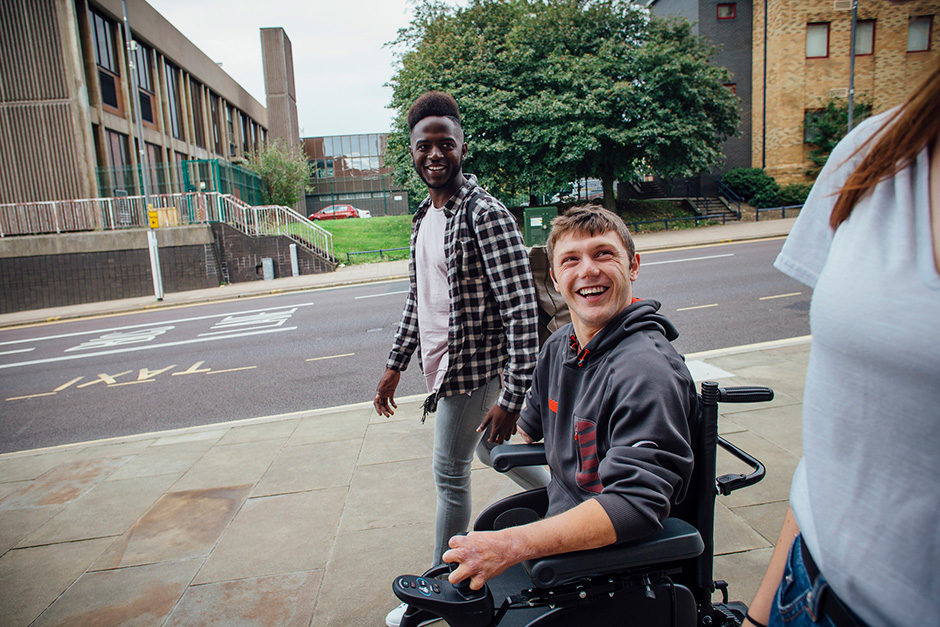Approximately 19%, or 56.7 million, of people in the United States have a disability that affects how they function in their daily activities. These individuals’ attachment styles, approaches to coping, and levels and types of social support are indicators of how well they will positively adjust to disability. This research examined how these indicators correlate with happiness in a sample of individuals with spinal cord injuries, and whether these findings apply to the general population of people with disabilities
Results
This research found that attachment styles, approaches to coping, and social supports correspond with happiness in people with disabilities. It suggests that rehabilitation counselors may be able to facilitate positive behavior changes and increase the subjective experience of happiness in consumers by providing interventions specific to these indicators:
Attachment Styles
Study participants with secure attachment styles who were comfortable with closeness and willing to depend on others indicated greater happiness than those with insecure attachment styles. Because research suggests that attachment styles can change, the following interventions may be helpful:
- Focus on increasing consumers’ self-esteem and disability acceptance to increase their internal feelings of worth.
- Model healthy attachments and form a strong working alliance with consumers to instill a sense of worthiness.
- Provide social skills training to enable individuals to feel more secure when interacting with others, forming friendships, and building a support system.
- Assist individuals in recognizing how past experiences with caregivers have shaped their coping style and how that style may now add to their distress.
- Help consumers understand how ineffective coping patterns, such as perfectionism as an attempt to meet the need to be loved and accepted, can add to unhappiness. Instead, try to find alternate ways to meet psychological needs.
Social Support:
Individuals with higher levels of social support, specifically from friends, indicated greater happiness. The support must encourage a sense of competence and skill in the receiver to increase feelings of worth. These interventions have been shown to increase levels of social support:
- Provide social skill training, including:
– Informal training from mentors and peers
– Focused training on how to make active and clear requests for help from persons serving as natural supports - Model effective social interaction
- Provide guidance and support
- Use intentional friendships (for example, with community volunteers) as social support
- Use natural supports in the workplace
Approaches to Coping
Problem-focused coping strategies which actively focus on the problem-at-hand and in finding and using solutions were found to increase levels of happiness in persons with disabilities. Individuals’ ability to cope with chronic illness and disability improved with these interventions:
- Provide coping effectiveness and problem-solving skills training
- Help clients change negative self-appraisals of the implications of disability
- De-catastrophize the disability experience
- Connect with consumers at an earlier stage in the adjustment process
- Challenge negative stereotypes about the disability experience
- Help develop alternative goals or alternative pathways to achieve pre-disability goals
Bottom Line
People with disabilities who were securely engaged with others, more satisfied with their social relationships, and coped more directly with their disability-related stress were more likely to experience a higher level of happiness. Positive psychology interventions related to attachment styles, coping approaches, and levels of social support can positively affect the subjective sense of happiness in people with chronic illness and disability.
Read More
Source: Wilson, L., Catalano, D., Sung, C., Phillips, B., Chou, C., Chan, J., Chan, F. (2013). Attachment style, social support, and coping as psychosocial correlates of happiness in persons with spinal cord injuries. Rehabilitation Research, Policy, and Education, 27(3), 187-205.
Learn More
You can access the full research article in Project E3’s Research Database:
Targeted Communities Research Article Database.

